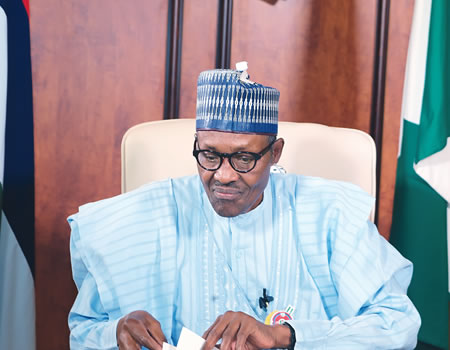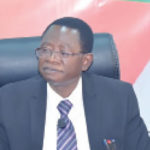After nearly a decade of his physical absence on the Nigerian Political scene, a former powerbroker in the Peoples Democratic Party (PDP) and top business man, Mr. Gbenga Olawepo-Hashim returned to the turf recently when he was chosen to deliver the lecture of the College of Postgraduate College of the Obafemi Awolowo University, Ile-Ife.
The lecture, titled “Agenda for all round national development,” aptly captures the state of the Nigerian state, the human development index, impediments to Foreign Direct Investments and sources of stunted political growth.
The political and business experience of Olawepo-Hashim had well-advertised him ahead of the lecture. His paper was chosen ahead of many others as he showcased the experience garnered in the political and business world more than 30 years after leaving the institution.
In politics, he was the Deputy National Publicity Secretary of the Peoples Democratic Party (PDP) and an aspirant to the governorship of Kwara state and in business, he chairs Oil Wold, which operates OPL 241 in the Nigerian continental shelf, Transnational Energy Limited an Independent Power Producing Company and Breston AS, among some local and international business concerns.
At the lecture, which was chaired by the Vice Chancellor of the University, Prof. Eyitope Ogunbodede and attended by some 100 professors as well as scholars from nearby University of Ibadan and other institutions, Olawepo-Hashim, a former Students Union leader of the OAU recalled with nostalgia, one of his major outings some 30 years ago at the Oduduwa Hall of the University some 30 years back.
He recalled that he had addressed the students in the height of the advocacy for mass action against the Structural Adjustment Programme (SAP) of the military administration of President Ibrahim Babangida adding that he was part of the youth leaders that mobilised the students under the aegis of National Association of Nigerian Students (NANS) and academic staff under the banner of Academic Staff Union of Universities (ASUU), to protest the state of the Nigerian economy when Naira was exchanging for 7 Naira to a Dollar. Today, he said, the same US Dollar exchanges for N360 to the dollar.
In seeking to define development, Olawepo-Hashim examined the theories propounded by development experts including Water Rodney, Bade Onimode, Samar Amin and Nzogola Ntalaja, declaring that while Rodney was preoccupied development at the individual level, describing it as “increased skills and capacity, greater freedom, creativity, self-discipline, responsibility and material wellbeing,” his latter day disciples interrogated the subject matter beyond the individual, expanding it to the society.
Nigeria’s Development in comparative terms
In comparing Nigeria’s development feat with its other contemporaries, Olawepo-Hashim said the country has fared worse. He stated that with Nigeria’s per capital income standing at 5,438.9 USD as at 2016, it is actually lagging behind when compared with her peers at independence in 1960. Some of the examples he gave include, Thailand 17,786 USD, Chile 24,584 USD, Turkey 26,453 USD, Iran 20,030 USD and Mauritius 21,628 USD.
Even the life expectancy, despite the increase from 41 years in 1990 to 53 years in 2015, Nigeria has still not fared better compared to its peers. Olawepo-Hashim compared Nigeria’s figures with countries like Liberia, 61 years, Niger 61.8 years, Sudan 64.1 years, and Rwanda 66.1 years as well as Cuba 79.1 years, Norway,81 years, and United States, 79.2 years.
He also submitted that by sheer superiority of democracy over autocracy, Nigeria was able to make some gains between 1999-2015, where the economy grew at six percent annually but lost the gains by July 2016 when the nation recorded its first recession in 25 years peaking at -2.4 percent drop in the GDP.
He said that even though the nation recorded some growth indices including increase in life expectancy from 46 to 51 years, increase in tele density from 400,000 lines to some 100 million lines and the expansion in the economy, making it the largest in Africa, the gains in the economic front were too little compared to the rate of poverty and underdevelopment.
The figures according to him became terrifying when records from the National Bureau of statistics are sampled. The records showed a 300 percent increase in unemployment which peaked from 6.3 percent in 2015 to 18.6 percent in 2017.Among the youths, he said that the records showed a 36 percent high, something he said could be responsible for the series of crises and upheavals in the polity.
ALSO READ: Fund university education, Awolowo Dosumu urges FG
Nigeria is redeemable
Despite the depressing statistics above, Olawepo-Hashim submitted that Nigeria’s situation is redeemable adding that a number of quick steps would reverse the doom. He said that his optimism is built on the belief that Nigeria can tap into the energy, creativity, imagination and the industry of its everyday citizens locally and in the diaspora. That he said must substantially deviate from the nation’s oil wealth and Natural resources.
He enumerated some of the conditions that can activate Nigeria’s greatness as including the presence of a robust middle class which the Standard Bank reported grew six folds between 2000 and 2010; the presence of a large market of potential consumers of modern goods and services; infrastructure deficit of the country which is a challenge and an advantage at the same time and could make it benefit from over $4.7 trillion available to spend globally as well as the active and resourceful diaspora population that is making huge remittances back home.
According to him, the crisis of Nigeria’s underdevelopment can be confronted with a bold agenda and plan, which he said must be aimed at changing the present economic structure of dependence on oil.
He also declared that to ensure all-round development, full employment remains a panacea for growth. According to him, Nigeria’s unemployment rate is today at all time height of 18.6 percent adding, however, that full employment remains a way out.
He stated that the government must ensure it creates jobs not just as social policy but one aimed at sustaining economic growth for a strong population with disposable income.
According to him, massive jobs must be created in Agro-Allied industry, ICT, Manufacturing, infrastructure, solid minerals extraction and others.
Olawepo-Hashim further submitted that though the word restructuring appears to have been given different meanings by different stakeholders in the polity, not many escape routes exist out of it. He talked about fiscal and financial federalism, declaring that only a decentralisation and devolution of powers can ensure a huge boost to the economy.
He stated that the practice that devotes 80 percent of the federal budget to recurrent expenditure and only about 20 percent to capital projects cannot engender development.
He said: “To begin with, it must be the goal of public finance to allocate 50% of revenue to capital expenditure. Secondly, there must be a complete change in the budgeting system from the current envelope system where annual budget are merely a repeat of previous year sectorial allocation with variations, accounting for inflation. Budgeting must become NEEDS-BASED, driven by national economic priority, based on a new plan to build modern infrastructure, make the needed social investment for the country and industrialize Nigeria.
“Thirdly, another element of financial reform that Nigeria needs to undertake is to ensure banking and financial sectors make capital available to the real sector of the economy. Whereas, monetary policy formulation is within the competence of the Central Bank which has autonomy over this matters, the necessary coordination between the fiscal and monetary Authorities must be generated to allow the new reform, which must also include bringing down the present unsustainable lending rate to a single digit.
“At 17.5% – 25% lending rate in the Nigeria financial market, no meaningful industrialization can take place as industrialists and manufacturers from other countries take money for business for as low as 4%. In Malaysia, prevailing lending rate is 4.9%; China is 4.35%; India is 9.45%; South Africa is 10%. Nigeria must move within the single digit band.”





